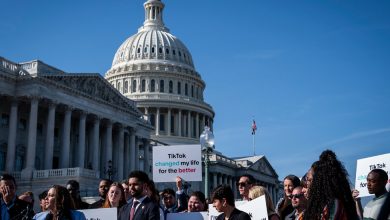Russian-Led Alliance Begins Withdrawing Troops From Kazakhstan

MOSCOW — A Russian-led military alliance on Thursday began the process of withdrawing troops from Kazakhstan, Moscow said, after a weeklong deployment that helped stabilize the Central Asian country after a wave of political unrest that left dozens dead and thousands injured.
Troops of the alliance, the Collective Treaty Security Organization, a NATO-like group that includes Russia and five other former Soviet states, have begun handing over strategic facilities that they were guarding to the local authorities and were preparing to leave the country, the Russian Defense Ministry said in a statement.
Russian and Kazakh officials had said this week that the troops would be withdrawn once the unrest had been brought under control, amid concerns among many in Kazakhstan that they would be stationed indefinitely in the country, permanently anchoring it in the Kremlin’s sphere of influence.
Many people in Kazakhstan had “negative” feelings about the presence of Russian troops in their country and therefore “the decision was made to announce as quickly as possible that their mission had been fulfilled,” Dimash Alzhanov, a political analyst, said in a phone interview from Almaty, Kazakhstan.
By extending a helping hand at the time of crisis, President Vladimir V. Putin of Russia had achieved a geopolitical triumph, Mr. Alzhanov said. But “such a favor has its own price and will not be forgotten,” the analyst noted. “We will know what that price will be later.”
Kazakhstan was plunged into the worst political crisis in its three decades as an independent country last week after protests over a fuel price hike spread across the country and turned Almaty, its most prosperous city, into a scene of armed street battles.
While protests were largely peaceful in the west of the country, they spiraled out of control in several big cities and most of all in Almaty, with the police there either unwilling or unable to contain violence that led to mass looting. The airport in Almaty was captured by a mob and only reopened to flights on Thursday.
The Kazakh authorities have been sending contradictory messages about the origins of the violence. In a speech on Monday, President Kassym-Jomart Tokayev said, without presenting evidence, that his country had been overrun by a group of international terrorists. He also said that 20,000 bandits had attacked Almaty in a Twitter post that was later removed from his official account.
Adding to the overall sense of confusion, the authorities still haven’t released an official tally of how many people died in the clashes, and many Kazakhs have been unable to locate relatives and friends. More than 9,800 people have been detained in the aftermath of the crisis, according to the authorities.
Some analysts say they believe that the violence stemmed from an internal power struggle among the country’s elites, pointing to the removal of various government and security officials that followed the unrest.
Understand the Protests in Kazakhstan
What’s happening? Protests in Kazakhstan incited by anger over surging fuel prices have intensified into deadly clashes over the future direction of the autocratic Central Asian country. Here’s what to know about how the protests started and why they matter:
What led to the protests? The protests began when the government lifted price caps for liquefied petroleum gas, a low-carbon fuel that many Kazakhs use to power their cars. But the frustration among the people runs deep in regards to social and economic disparities.
What do the protesters want? The demands of the demonstrators have expanded in scope from lower fuel prices to a broader political liberalization by seeking to oust the autocratic forces that have ruled Kazakhstan without any substantial opposition since 1991.
Why does the unrest matter outside this region? Until now, the oil-rich country has been regarded as a pillar of political and economic stability in an unstable region. The protests are also significant for Vladimir Putin, who views Kazakhstan as part of Russia’s sphere of influence.
How has the government responded? President Kassym-Jomart Tokayev has called the protesters “a band of terrorists,” declared Kazakhstan under attack and asked the Russian-led military alliance to intervene. Officials have instituted a state of emergency and shut off internet access.
On Thursday, the National Security Committee, Kazakhstan’s most powerful security agency, said that it suspected Karim Masimov, its former chief who was dismissed during the turmoil last week, of attempting to stage a coup.
Mr. Masimov was regarded as one of the most powerful allies of Nursultan Nazarbayev, who ruled Kazakhstan from 1990 to 2019, when Mr. Tokayev, Mr. Nazarbayev’s handpicked replacement, took over. Mr. Tokayev has since made comments implying that Mr. Nazarbayev was responsible for the cronyism and corruption that many analysts feel contributed to the unrest.



